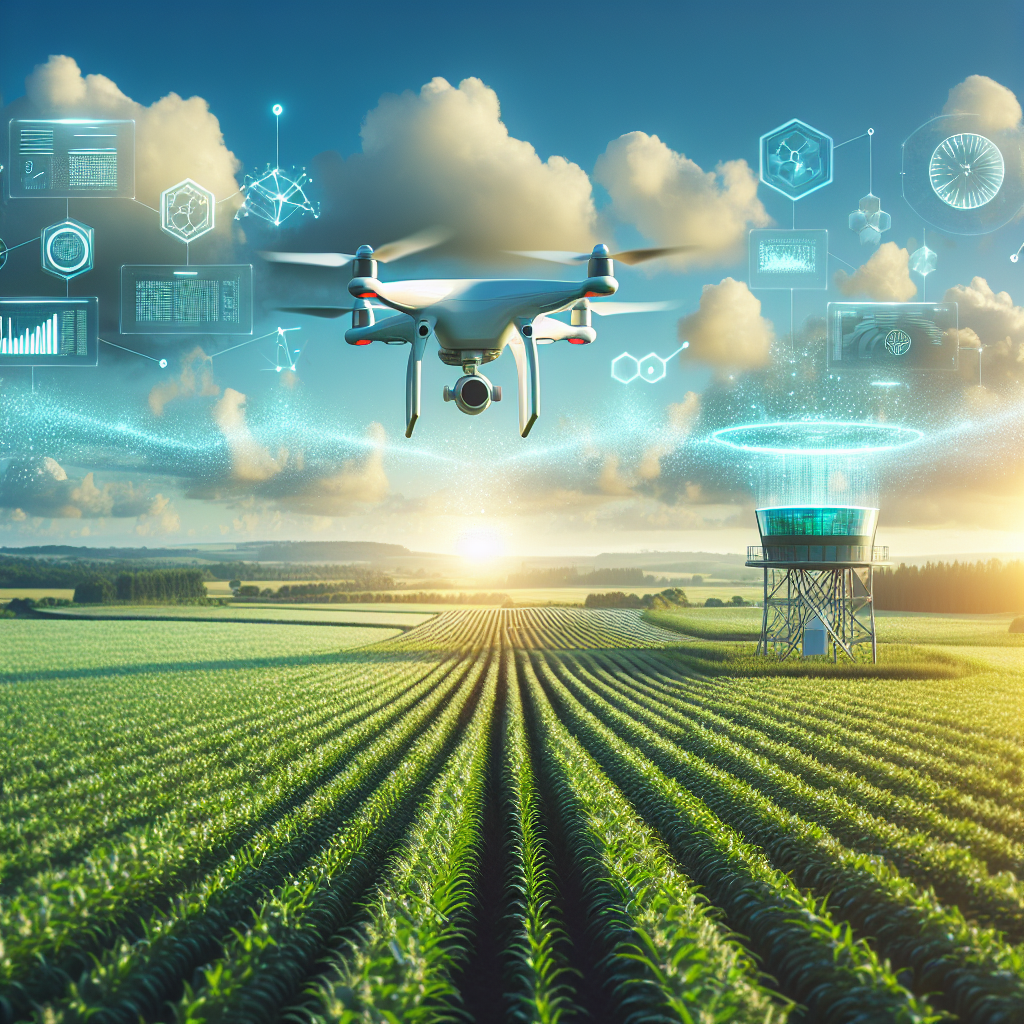Smart farming, also known as precision agriculture, is revolutionizing the way we grow crops by incorporating cutting-edge technologies such as Artificial Intelligence (AI) to maximize crop yields. By harnessing the power of AI, farmers can make more informed decisions, optimize resources, and ultimately increase productivity and profitability.
AI in smart farming involves the use of advanced algorithms and machine learning techniques to analyze data collected from various sources such as sensors, drones, and satellites. This data is then used to make real-time recommendations to farmers on how to best manage their crops, from planting to harvesting.
One of the key benefits of AI in smart farming is its ability to provide personalized insights to farmers based on specific conditions of their fields. For example, AI can analyze soil moisture levels, weather patterns, and crop health data to recommend the optimal irrigation schedule for each individual plant. This not only saves water and reduces waste but also ensures that crops receive the right amount of nutrients at the right time, leading to healthier plants and higher yields.
Another important application of AI in smart farming is predictive analytics. By analyzing historical data and trends, AI can forecast potential risks such as pest infestations, diseases, or adverse weather conditions. This allows farmers to take proactive measures to mitigate these risks, such as adjusting planting schedules, applying targeted treatments, or implementing pest control measures.
AI-powered drones and robots are also playing a crucial role in smart farming by providing real-time monitoring and data collection. Drones equipped with sensors and cameras can fly over fields to capture high-resolution images, detect crop health issues, and monitor growth patterns. This information is then analyzed by AI algorithms to provide insights on crop conditions and productivity, enabling farmers to make timely decisions and interventions.
In addition to increasing crop yields, AI in smart farming also helps farmers reduce costs and improve sustainability. By optimizing resource use, such as water, fertilizers, and pesticides, AI can minimize waste and environmental impact. This not only benefits the bottom line but also contributes to a more sustainable and eco-friendly agriculture industry.
Furthermore, AI in smart farming is helping farmers manage the growing complexity of modern agriculture. With the increasing demands for food production to feed a growing global population, farmers are facing challenges such as labor shortages, fluctuating market prices, and changing climate conditions. AI provides them with the tools and insights needed to navigate these challenges and stay competitive in the market.
Overall, smart farming powered by AI is transforming the agriculture industry by enabling farmers to make smarter decisions, optimize resources, and maximize crop yields. By leveraging the latest technologies and innovations, farmers can increase productivity, reduce costs, and improve sustainability, ultimately leading to a more efficient and profitable farming operation.
FAQs:
Q: How does AI in smart farming improve crop yields?
A: AI in smart farming analyzes data from various sources to provide personalized insights to farmers on how to optimize crop management. By recommending the optimal irrigation schedule, detecting crop health issues, and forecasting potential risks, AI helps farmers make informed decisions that lead to higher yields.
Q: What are the benefits of using drones and robots in smart farming?
A: Drones and robots equipped with AI technologies can provide real-time monitoring and data collection, enabling farmers to detect crop health issues, monitor growth patterns, and make informed decisions. This helps farmers optimize resources, reduce costs, and improve productivity in their fields.
Q: How does AI in smart farming contribute to sustainability?
A: AI in smart farming helps farmers optimize resource use, such as water, fertilizers, and pesticides, to minimize waste and environmental impact. By reducing inputs and improving efficiency, AI contributes to a more sustainable and eco-friendly agriculture industry.
Q: How can farmers implement AI in their farming operations?
A: Farmers can implement AI in their farming operations by investing in AI-powered technologies such as sensors, drones, and robots, and integrating them with their existing systems. They can also work with AI service providers or consultants to develop customized solutions that meet their specific needs and goals.

